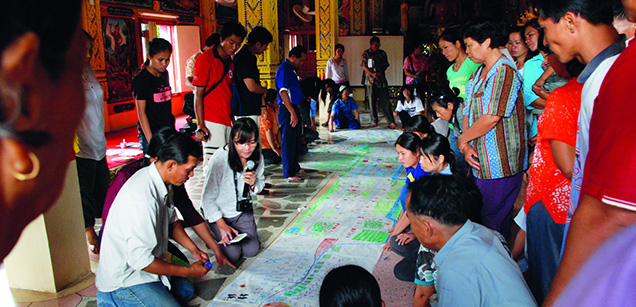
National Health Assembly
2nd – 4th February 2012
United Nations Conference Centre
The Health Assembly is “a process in which the relevant public and State agencies exchange their knowledge and cordially learn from each other through a participatory and systematically organized forum, leading to recommendations on Healthy Public Policies or Public Healthiness.”
It is a social innovation of Thailand, established under the National Health Act 2007. It is one of the most important social mechanisms to support the participatory, constructive and peaceful reconciliation among all stakeholders towards consensus agreement on specific Healthy Public Policy.
According to the Act, the National Health Assembly (NHA) shall be organized at least once a year. The National Health Assembly Organizing Committee (NHAOC) comprising of representatives from the state and other sectors has been established by the National Health Commission. At least 60 per cent of the NHAOC members have to come from non-state agencies. The rules and procedures for the National Health Assembly have been formulated by the NHAOC.
This year, the NHAOC has decided to postpone the 4th National Health Assembly (NHA2011) from December 2011 to 2nd – 4th February 2012 due to the flood across the country. The flood has caused the delayed in organizing nationwide public consultation on the NHA draft resolutions.
This extensive participatory approach is the key element of the NHA. It enables partners from all related sectors at all levels to have ownership of the policies as well as to build up their collective capacity.
NHA2011 has 6 agenda items to be discussed this year.
1. Natural Disaster Management
2. Sustainable Sub – Watershed Management
3. Management of the problems of suicide
4. Management of Illegal Advertisement of Drugs and Health Products
5. Occupational Health and Safety of Labour
6. Food Security: The Reuse of Cooking Oil
The resolutions or recommendations from the NHA will be submitted to the National Health Commission which will consider taking appropriate actions to achieve the recommendations, including, if necessary, submitting to the Cabinet. Thus it is a combination of using both ‘soft’ social power and power of ‘wisdom’ and the ‘hard’ authoritative power to formulate and implement ‘healthy public policies’
